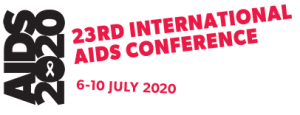By Adelaide Hamese
I grew up in a country where if you are living with HIV/AIDS, you are considered to be dying. It is a country where PLHIV don’t disclose their status in fear of being the laughingstock of the community and where they are considered disgraceful to the family. In other words, speaking about HIV is taboo. So, one would ask me how I did it at such a young age?
Here is how the story goes…
My parents found out I am HIV positive when I was five years of age. This was after I became ill and admitted to hospital where I was diagnosed with meningitis which nearly took my life. At that point, I was too young to understand what was going on. I started taking ARVs at age five and would go for check-ups every month. This obviously meant I was missing school every month and because I did not understand what was going on, I would ask my mom why I go to hospital every month and she would tell me I have a teeth problem. I honestly believed her although no one ever checked my teeth.
When I was in Grade 5, a friend of mine whose parents knew my mom, told everyone at school that I am HIV positive. The next day when I went to school, my other friend told me what had been said. At that time, this was news to my ears and so I said that there was no such thing with confidence. I thought to myself; how can a girl with such curves be HIV positive? And as for my skin? It is popping and clear. I thought this because where I grew up, if someone is slim with pimples, we think they are HIV positive. That day, I got home and asked my aunt if what I had heard at school was true. She didn’t answer and instead, told my mom, whose reaction confirmed everything for me.
That’s how I discovered I am HIV positive and nothing was ever the same since that day. I started battling with myself and the people around me. I sometimes felt worthless, useless, ugly and I never understood why God would give me HIV at such a young age. I had thousands of unanswerable questions to the universe. I bottled so many emotions inside for a very long time. This then led to a battle with suicidal thoughts, anxiety and depression for three years. During this period of my breakdown, I learnt so much about the virus and about myself which helped me become stronger. Although I felt broken, I managed to convince myself that I am bigger than HIV and reminded myself that my story is for people to hear. The belief that kept me going was, if not me, then who?
At some point I decided to share my story with my close friends, and I told them how I managed to survive. Not all of them responded the same way and I lost friends in the process. Despite this I kept going, owning and telling my story which made me more resilient to HIV-related stigma and discrimination. The stigma and fear that I faced made me wake up one day and say: I am ready for the world to know about my journey with HIV.I realized that living with HIV is not a doorstep into heaven, but it doesn’t make you less of a person. Living with HIV does not define your life journey so do not let it define you. Instead, you have to define it.

